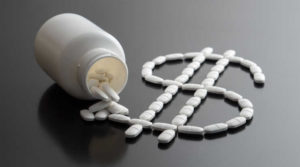
By Tero Vesalainen @ Shutterstock.com
According to David Wainer, writing in The Wall Street Journal, when the patent on AbbVie’s drug, Humira, expires next year, there’s going to be a big winner, but it may not be the consumer. He writes:
Starting next year the highest-grossing drug of all time, AbbVie increase; green up pointing triangle‘s Humira, will finally face competition from copycat biologics in the U.S.
Yet the makers of the complex generics known as biosimilars won’t necessarily be the biggest winners. The top beneficiaries could instead be the middlemen such as Cigna decrease; red down pointing triangle and CVS Health decrease; red down pointing triangle, which will negotiate and dispense the drugs to patients.
AbbVie’s Humira—a drug used to treat diseases from rheumatoid arthritis to gut disorders—has raked in about $200 billion over its lifetime and is on pace to bring in more than $21 billion this year alone, according to data from Visible Alpha. While biosimilars have been available in Europe since 2018, a thicket of patents has shielded Humira from competition in the U.S. until 2023, when companies including Amgen and Teva Pharmaceutical TEVA -2.37%decrease; red down pointing triangle will begin rolling out versions of the medication.
While manufacturing biosimilars will be a big opportunity for other drug companies, the Food and Drug Administration has approved seven versions of the drug, meaning there will be pressure on margins as companies compete to grab a slice of the blockbuster. AbbVie itself will continue making money from Humira for several years, with annual revenue for the drug exceeding $4 billion until 2026, according to data from FactSet.
The competition between biosimilar makers will benefit the U.S. consumer and taxpayer as bills start coming down for the drug. Specialty drug costs, including Humira, represent 2% of prescriptions, yet account for 50% of drug spending, according to UnitedHealth Group’s Optum Rx. Potential savings related to biosimilars could exceed $100 billion over the next five years, it said.
But the savings will also benefit pharmacy-benefit managers, or PBMs, such as Optum Rx, Cigna’s Evernorth/Express Scripts, and CVS’s Caremark, which negotiate those discounts and then provide the medication to patients through specialty pharmacies.
Read more here.
